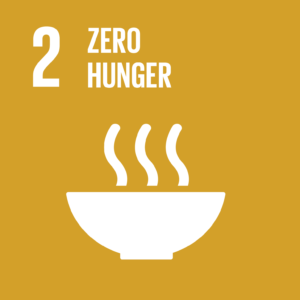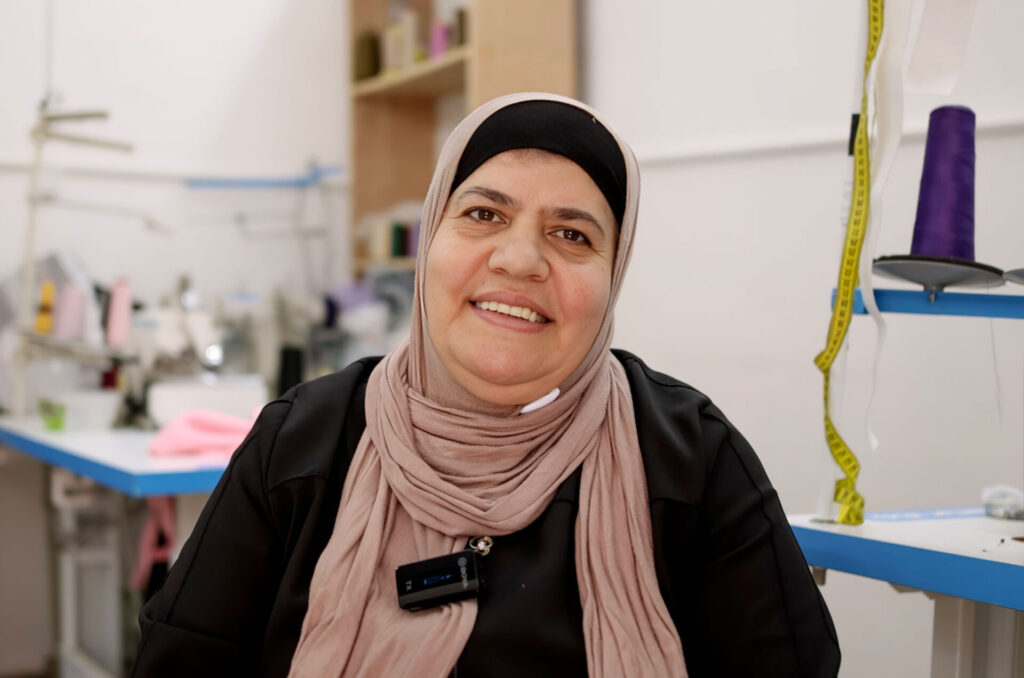Nov, 2022
Rahma and Iyad both got new greenhouses this year, which have brought their families income and fresh produce for their dinner tables.
Rahma, 51, cannot hide her happiness when she enters her greenhouse in Nuseirat in central Gaza.
The mother of six lost her husband two years ago following a sudden heart attack. A farmer, he had been the sole breadwinner for the family.
The family’s financial situation severely deteriorated in the years after he passed. The difficult circumstances facing Rahma's family made them eligible for Anera’s family greenhouse program.
With the support of Zakat Foundation of America, Anera completed construction of a greenhouse for the family this past summer. The family decided to plant cucumbers as their first crop.
"Now it is much better,” Rahma says of the family's finances. “This project can support all of us."
Rahma works in the greenhouse with her five sons, who learned how to farm from their father.
"My sons mainly manage the work in the greenhouse. I come to help them every day to do the harvesting and weeding, and to take care of the place," she says while picking ripe cucumbers.
This year, Anera has installed 43 greenhouses for poor households in Jabalia, central Gaza, Khan Younis, Qarara and Rafah. Farmers are growing tomatoes mainly, although some are growing cucumbers, eggplants and peppers. All are enjoying their harvests.
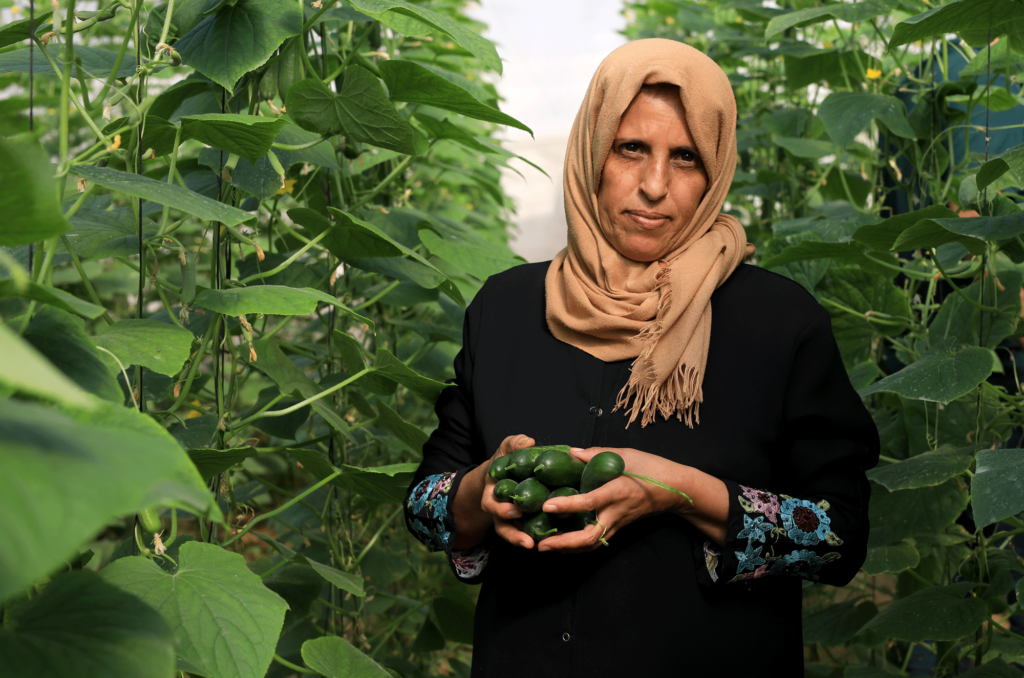

“This project can support all of us."
Ghassan, Rahma's eldest son, who runs the greenhouse project with his brothers, says that this project feeds all his family members.
"The green house was installed four months ago,” he says. “We started harvesting the crop four weeks ago, with an average of 14 boxes per week." Each box is worth eight to ten shekels on the market.
Local buyers come to their greenhouse to take the crop and sell it at the market.
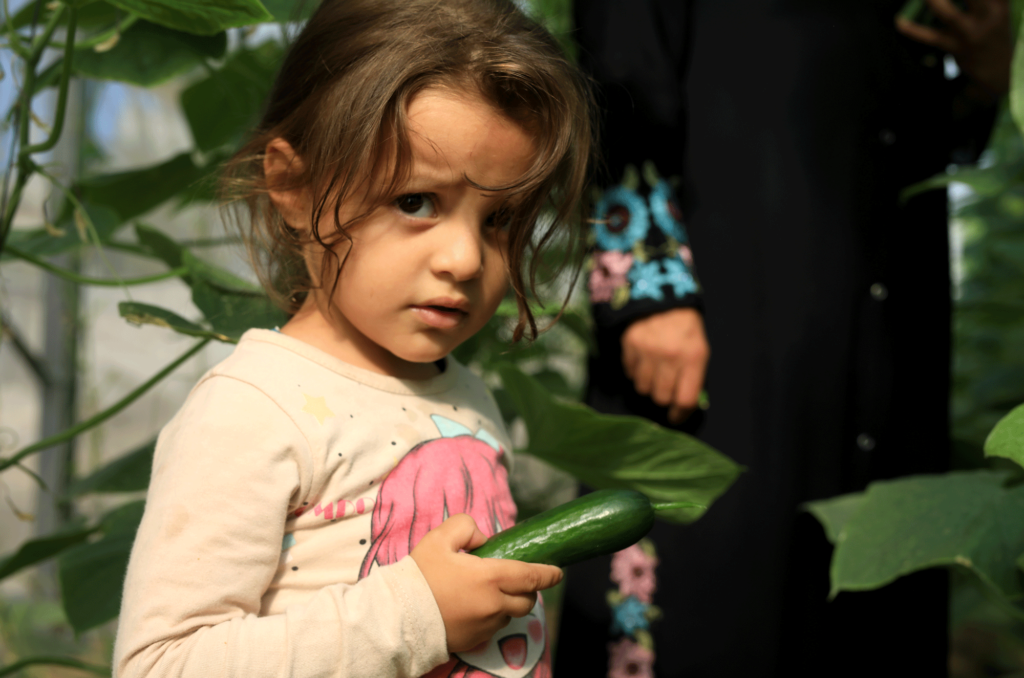
The family says that in a good week they harvest 17 boxes of produce, which they can sell for around 140 shekels, or about $50.
Ghassan says that this is a "very satisfactory earning" as a beginning for his family, and he expects production to increase further.
“I thank Anera for the great effort in installing the greenhouse," he said. "It is a milestone in my family’s life, and I hope that the project will be expanded to generate more income for the family.”
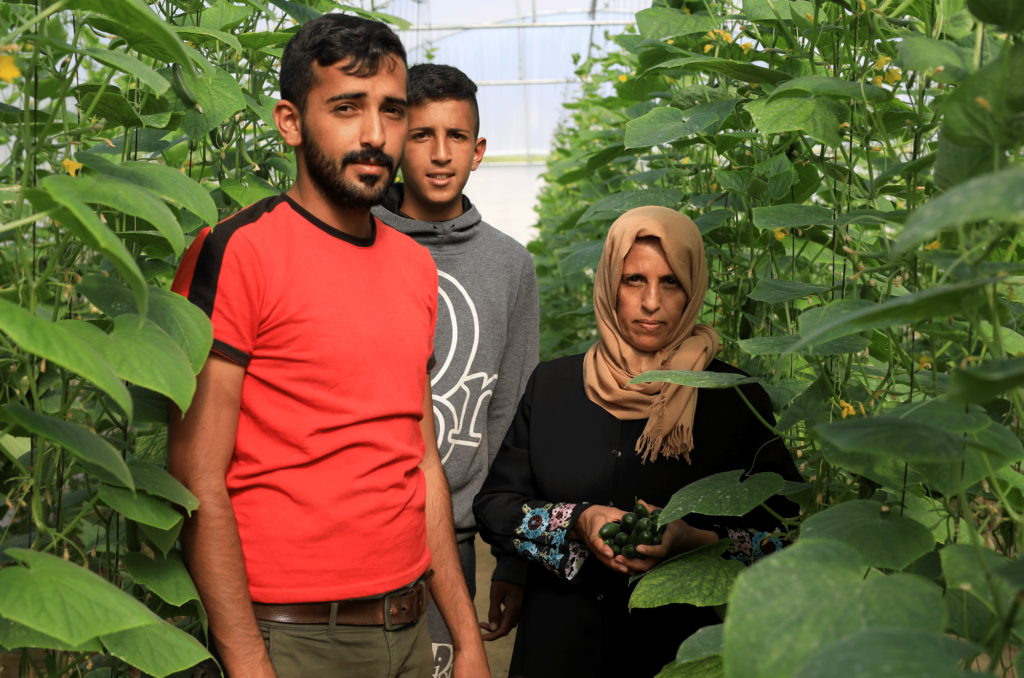
‘A few days away’
Iyad, 50, is another new owner of an Anera-built greenhouse. He is just a few days away from reaping the fruits of his labor during the last couple of months.
A father of four children who supports his elderly mother, he started farming several years ago. This fall, he was able to increase his yields thanks to the new greenhouse.
"Anera installed this greenhouses project on September 17. Now after two months, I see the results," he says on a tour of his immaculately maintained greenhouse.
The tomatoes he has planted are about to ripen. "I expect to earn 300 shekels from each harvest time [about $100 a week]" Iyad says while plucking some fragrant tomatoes.
"In the winter there is no income, so this project will support my family."
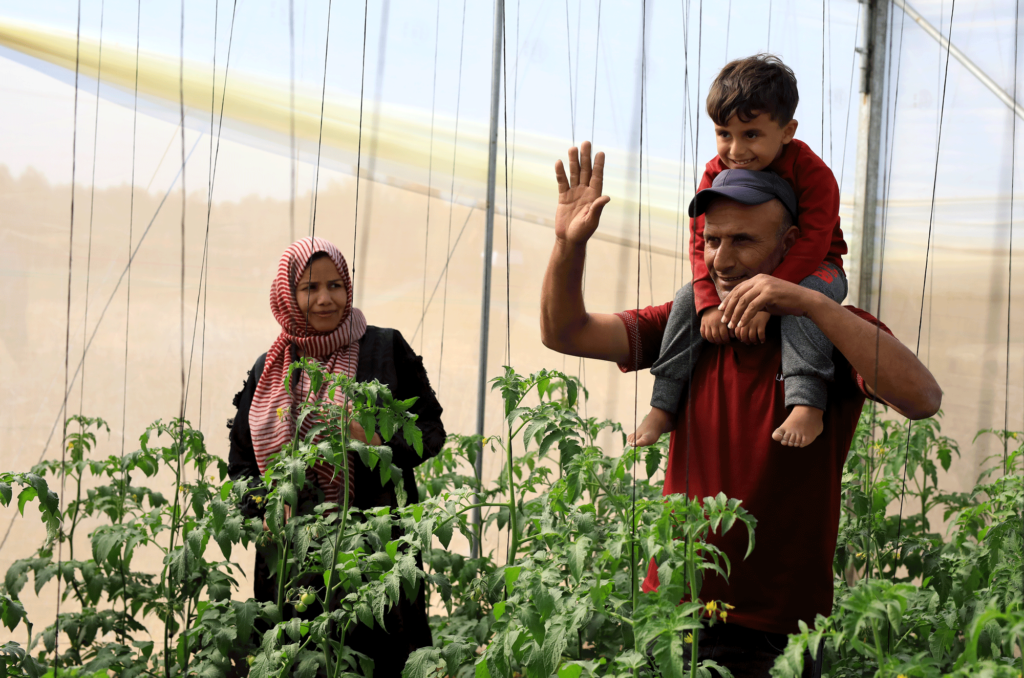

"In the winter there is no income, so this project will support my family."
Iyad sees these projects as “life-changing” because they help farmers like him provide for their families amid a long period of economic depression.
"I take very good care of the crops, following the instructions of the engineers and specialists at Anera," he said. "We received intensive trainings on how to add hormones [phytohormones], fertilizers, and the correct methods of irrigation and spraying of crops."
Iyad’s wife, Taghreed, 34, who has studied history and Arabic, works tirelessly with her husband in their greenhouse.
"Despite holding two BAs, I couldn’t find a job," Taghreed said. "The situation in Gaza is difficult and unemployment rates are on the rise."
"I am currently working in agriculture along with my husband," she says. "This is a dream project for us and we’re eagerly awaiting the harvest."
Taghreed says that tomatoes require great care and attention, so they attend to their plants two to three times a day.
"This tomato project is very much needed, especially in the winter."
Taghreed learned about agriculture from her family. "My family are first-class farmers. I used to help them farm and harvest crops in between going to classes at the university."
"This is what gave me experience. I always check on the greenhouse and the crops with my husband."
“Agriculture knows us, and we know it," she says simply.
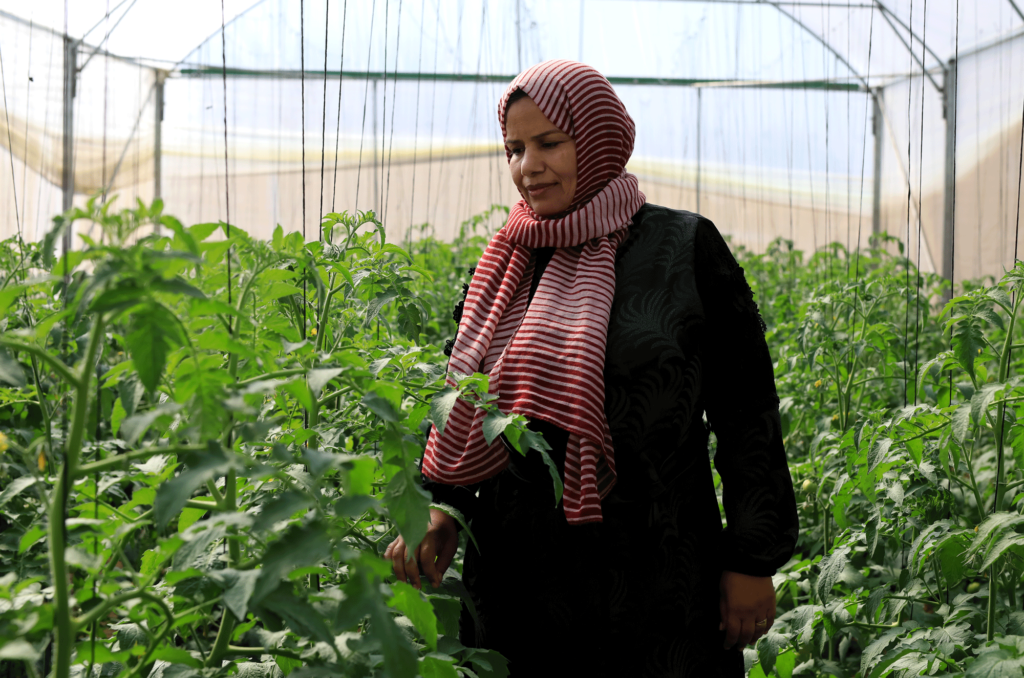

"This is a dream project for us and we’re eagerly awaiting the harvest."
Taghreed considers the role of women is essential in all economic and agricultural projects in Gaza.
"The woman farmer has a lot of experience in tending to crops, and this is very important as she also manages her home."
Iyad and Taghreed hope their project will be expanded as much as possible.
